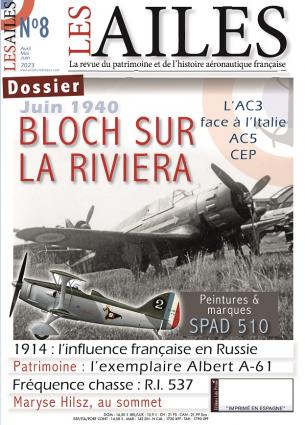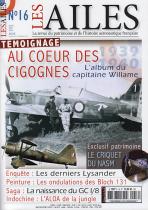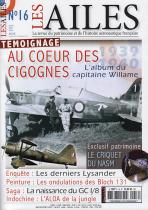You will discover in these pages that the restoration of the Albert A-61 by Espace air passion meets specifications and a professionalized and rigorous process that is too rarely found in France in aeronautics, including in State establishments which are nevertheless subject to these constraints if they have a conservation role1.
Historical aeronautical parts are no different from old automobiles or if we push the reasoning, archaeological parts or antique furniture. In a private capacity, everyone is naturally free to choose their approach, whether for static or flying restoration, and it is in no way open to criticism. But for those who wish to maintain the value and history of their pieces, it is important to know that Espace air passion has drawn up a charter of good practices and that those who wish to consult it can contact it2. This first requires a rigorous analysis, both physically and historically. It is indeed difficult to carry out a correct restoration without knowing the history of an aircraft. This is an aspect, as you know, that is particularly close to our hearts and we know that this process can appear complicated. This is why LES AILES has positioned itself since its beginnings as a bridge between workshops and historians and why you should not hesitate to get in touch with us.
If we look on the other side of the street, these approaches are today the common lot in terms of old cars, an area that made its revolution more than thirty years ago. Beyond the pleasure of finding a vehicle "as it was in its day", there is behind all this a simple economic reality (and for once positive) and which applies to any old object: plus its history is known and detailed, the more its restoration is minimal and/or faithful to its origins, the more its value increases. Let us add, and this is in our most important sense, that its interest too.
Several associations today have clearly adopted this way of seeing things and, unsurprisingly, their discoveries and their knowledge are absolutely fascinating. Their example, we know, is emulated today and we bet that for the solid preservation of our heritage this will continue.






